Renee Giarrusso's Blog, page 2
August 21, 2025
Limitless Leadership: The Power of Multi-Dimensional Energy
In today’s dynamic and demanding work environment, leadership has evolved beyond traditional roles. It’s no longer just about managing tasks—it's about managing energy.
The world has changed and so have we.
With constant demands and rapid change, leaders must be mindful of their energy and not just physical energy, but the full spectrum of energy that defines our human experience. This holistic approach is the foundation of what I call a Limitless Leader: someone who leads self and others by learning, unlearning, relearning, and evolving.
The 5 Dimensions of Limitless Leadership EnergyTo lead effectively, we must harness energy across five key dimensions:
Emotional Energy – How we feel.Mental Energy – How we think.Social Energy – How we connect.Physical Energy – How we function.Spiritual Energy – What we believe and nurture.When these energies are aligned, we experience balance, clarity, and vitality. We show up as our best selves and help others do the same.
Why Energy Matters More Than EverRecent data underscores the importance of energy and wellbeing in the workplace:
72% of organisations now have formal wellness programs.81% of employees say these initiatives positively impact their health.Companies investing in wellness see a $3.80 return for every dollar spent.58% of employees report feeling burned out at least once a month.Most workers are under stressed physically and spiritually, but overstressed emotionally and mentally.Energy leadership, being aware of and intentionally managing your energy has emerged as a key driver of team performance, engagement, and resilience.

Rate each of the five dimensions from 1–5 (1 = low, 5 = optimal).
Then ask yourself:
• What’s one thing I can do to move the needle toward a 5/5?
• When was I last at a 5/5 in this area? What was different?
“We cannot lead from an empty cup. We want to give the world the best of us, not what’s left of us.”
5 Strategies to Elevate Your Energy1. Emotional Energy
Cultivate emotional intelligence through self-awareness and empathy.Know your triggers and validate your emotions.Lock self-care into your calendar and don’t leave it to chance.2. Mental Energy
Your thoughts shape your reality. Practice mindfulness and gratitude.Use the 3:1 ratio; three positives for every negative.Companies offering mental health days see a 24% increase in satisfaction.3. Social Energy
Build meaningful relationships and eliminate energy-draining ones.Create a “No List” and decide who and what are you saying no to?Connect with people that light you up.4. Physical Energy
Australians spend 90% of their time indoors, get outside!Aim for 150 minutes of moderate exercise weekly.Prioritise sleep, nutrition, and screen-free time before bed.5. Spiritual Energy
Connect with your values, vision and purpose.Journaling and reflection help track your spiritual growth.Most workers lack spiritual alignment yet it’s the most significant source of energy.Energy Leadership in ActionEnergy leadership is about how you show up not just what you do. Leaders who operate from anabolic energy (positive, constructive) foster creativity, trust, and collaboration. Those stuck in catabolic energy (negative, draining) create stress and disengagement.
Balanced energy across these five dimensions empowers us to lead with clarity, compassion, and purpose. It transforms not only individuals but entire organisations into vibrant, adaptive, and sustainable entities.
What are you putting into action today?
I’d love to hear your thoughts.
Lead to be limitless.

August 17, 2025
70. Pause, Reflect, Lead: The EQ Advantage with Amy Jacobson
In this insightful episode of the Limitless Leaders Podcast, I’m joined by the brilliant Amy Jacobson, Emotional Intelligence and human behaviour specialist, speaker, and author of The Emotional Intelligence Advantage: Mastering Change and Difficult Conversations.
Amy is on a mission to simplify E.I. and help leaders and teams understand how their emotions impact performance, communication, and connection. With a deep background in corporate leadership and a passion for decoding human behaviour, she shares why E.I. isn’t just a buzzword, it’s a game-changer.
You can watch the podcast here, click the image below, or listen on your favourite platforms.
Key Takeaways:Amy is a sought-after media commentator who’s mission is to break down misconceptions around E.I., help people to increase their emotional intelligence and create purpose-driven teams who get results.
Emotional intelligence is not soft, it’s strategic. It drives leadership impact, team performance, and trust.Emotions aren't bad. They just need regulation. Feeling them is essential, but looping or overreacting can derail outcomes.Connection is core. EQ helps leaders build true rapport, especially in diverse, hybrid, and fast-paced workplaces.Self-awareness is the starting point. Take a moment to pause, reflect and ask, “How am I feeling right now?”Leadership is about people, not just performance. EQ helps leaders move from process-driven to purpose-driven.Contact Amy Jacobson:Enjoy This Podcast?Leadership in changing times can be difficult, but you can adopt certain traits to get your team through it. You can also join mentorship programs to gain the skills you need.
Please post a review and share it! If you learned something by tuning into this podcast, do not hesitate to write a review and share it with your friends! The world needs more people with the drive and leadership qualities to make the world a better place. We need strong leadership skills and a learner’s attitude today more than ever.
 To listen to the podcast, select your favourite link below.
To listen to the podcast, select your favourite link below.
Apple: https://www.reneegiarrusso.com/PodcastOnApple
Spotify: https://www.reneegiarrusso.com/PodcastOnSpotify
Android: https://www.reneegiarrusso.com/PodcastOnAndroid
YouTube: https://www.youtube.com/@ReneeGiarrusso-RGDynamics
Have any questions? You can contact me through these platforms:
Company website
Instagram
Facebook
LinkedIn
To leading the future,

August 10, 2025
Knowledge Is No Longer Power — It’s How You Apply It with the Human Touch
There was a time when knowledge was power. Those who knew the most were the ones others turned to for guidance, decision-making, and leadership. Fast-forward to now, and we live in a world where anyone can access anything, about anything, at their fingertips. Data, facts, and frameworks are no longer locked away they’re everywhere.
So where does that leave us as leaders?Knowledge still matters, but it’s not the differentiator anymore. What sets leaders apart now is how they apply what they know and more importantly, how they bring their real, raw, and sometimes messy selves into the way they lead.
It’s no longer enough to know your craft. We need to show our humanity. To share our stories. To let our truth, our experiences, and even our scars be part of how we influence, connect, and inspire.
To be a Limitless Leader in this new landscape means embracing the cycle of learning, unlearning, and relearning. It means evolving, not just our skills, but our mindset, values, and presence.
So I’ll ask you this “what are you unlearning right now? What are you approaching differently, with more heart and less armour?
Here are five practical strategies to bring more of your essence into leadership, in a world full of noise, chaos, untruths, and infinite access to information:
1. Lead with your story, not just your skills
Facts inform, but stories connect. Share experiences from your career (and life) that shaped how you think and lead. When people see the human behind the title, trust deepens. Adopt the Gift Mindset and see challenges as opportunities to grow and share your lessons.
2. Trade perfection for presence
Leadership isn’t about always having the right answer, it’s about being fully present when it matters. Ditch the pressure to appear flawless and instead focus on listening, noticing, and responding in the moment.
3. Unlearn what no longer serves you
We all have habits, beliefs, or leadership “rules” we’ve carried for years. Ask yourself: “Does this still serve me, my team, and the outcomes we’re working toward?” If not, release it and try something new.
4. Create space for real conversations
In a corporate world driven by KPIs and deadlines, the simplest way to lead with heart is to make time for meaningful dialogue. Ask better questions, listen deeply, and value the perspectives you hear even when they challenge your own.
5. Anchor decisions in values, not just data
Data is important, but it can’t replace discernment. In moments of complexity or uncertainty, lean into your values as your compass. It not only keeps you authentic, but it inspires others to do the same.
In a world overflowing with information, the true edge for leaders isn’t in knowing more it’s in showing more.
More vulnerability.
More courage.
More alignment between who you are and how you lead.
Knowledge is a tool. Your essence is the power source.
So, what will you unlearn today? And how will you lead, not just with your head, but with your heart?
Lead to be limitless.

July 17, 2025
The 7 Signs Your Team Needs a Reset
The world of work has changed. In today’s fast-moving world of hybrid work, constant change, and unrelenting deadlines, it’s easy for teams to get caught up in doing without pausing to reflect, reset, or reconnect. But I believe high-performing teams don’t just work harder, they work smarter by recognising when something’s off and taking time to realign.
Pausing to reset and refocus isn’t a luxury, to sustain growth and performance it’s non-negotiable.
A bit like a device running too many apps at once, even the most talented teams will slow down or malfunction if they don’t take time to recharge and recalibrate.
When teams don’t stop to reset, performance erodes, tension builds, and people start simply “get through the day” rather than making an impact. I’m seeing many teams on the brink of burnout and misalignment to roles and values. All it takes is a proactive approach and giving your team the permission to pause, now, not when its too late.
So how do you know when it’s time to hit pause and guide your team through a reboot?
Here are 7 powerful signs that your team might need a reset:1. Motivation Has Dropped Off
When the team vibe feels flat and energy is low, there’s usually a deeper issue at play. You may notice language like “What’s the point?” or “Just trying to make it to Friday.” Low motivation is often a symptom of unclear purpose, lack of recognition, or disconnect from meaningful work.
2. The Team Feels Disconnected
If collaboration feels forced, meetings are transactional, and people are working more in silos than in synergy, disconnection is present. Connection isn’t a “nice to have”, it’s the fuel for trust, communication, and healthy team dynamics.
3. There’s a Lack of Shared Goals
When everyone’s focused on individual tasks or KPIs, it’s easy to lose the forest for the trees. A team without a unifying purpose starts to drift. Shared goals create alignment, momentum, and a sense of collective achievement as do shared team values.
4. Creativity and Innovation Are Missing
If your team is recycling old ideas or avoiding risk, innovation has taken a back seat. Creativity thrives in environments with psychological safety, time to think, and space to experiment. A lack of this signals a stagnant or risk-averse team culture. When teams get creative together, I have seen firsthand that collaboration is the by-product of this.
5. Miscommunication or Confusion is Present
If team members are unclear on their roles, priorities, or expectations, it breeds inefficiency and frustration. When people feel they’re out of the loop or don’t know what’s going on, clarity needs to be restored and this needs to be done fast. Many people withdraw from others and effective communication decreases resulting in disconnection.
6. The Focus is on Activity, Not Impact
Being busy isn’t the same as being productive. If your team is constantly “doing,” but outcomes are unclear or inconsistent, it’s a sign they’re stuck in motion, not progress. Purposeful work beats busyness every time. Check your team isn’t just on autopilot and ticking things off. Quality over quantity wins every time.
7. Burnout is Rising
You may hear things like “I’m exhausted” or notice people pulling back, calling in sick more often, or just mentally checking out. Burnout is more than tiredness, it’s a loss of connection to the work, the team, and themselves. Most of the time burnout is a person’s misalignment to their role or purpose.

When teams don’t take the time to pause, they drift. They lose momentum, clarity, and connection. A reset is an opportunity to realign, reconnect, and reignite energy and purpose. It gives space for honest reflection, shared ownership, and a renewed sense of direction.
This doesn’t mean starting over, it means asking the right questions and creating space for realignment, so your team can thrive, not just survive.
The best leaders don’t wait for a crisis to make a change. They know when to pause the doing to focus on being and become realigned, refreshed, and ready to lead forward. If even a few of these signs are showing up, it might be time to step back so your team can leap forward.
Ready to Reset?For two decades at RG Dynamics, we’ve designed and delivered hundreds of 5-star, world-class team programs. We know the importance of giving your team permission to pause, reset, and refocus.
From our Limitless Teams® workshops and Mapping Motivation for Team Success program to our hands-on Cook and Connect 1-day retreats, we tailor every experience to meet your objectives and success outcomes.
If you’re ready to accelerate performance, motivation, and happiness in your team, we’d love to partner with you.
Lead to be limitless.

What our clients say:
“I recently had the opportunity to connect with Renée for a coaching session and to also take part in a Thrive 2025 session. Renée is absolutely amazing, her energy and passion truly set her apart. After a huge year there were some weary faces, however after Renée’s session, everyone left the Thrive session energised and grounded, with intent and focus in readiness for the new year. Thank you Renée!”
– Lexia Laracy FCIPS (CS), Head of Procurement Excellence | APA
“Appreciate the learnings and support, for both myself and our team, received from Renée during our workshops and coaching sessions. We engaged Renée to help develop not only our senior leaders with her Limitless Leaders Acceleration program but also our future leaders exposing them to a limitless mindset and motivational intelligence team program which has proved invaluable in our quest for constant improvement. Renée builds rapport quickly which enables her to engage with any audience easily.”
– Simon Taylor, Regional West Manager – Metricon Homes
July 6, 2025
69. The Power of Care with Dr. Siew Fang Law
As leaders, we often pour so much into others, our teams, our organisations, our missions, that we forget to pause and check in with ourselves. In this episode of the Limitless Leaders Podcast, I sat down with Dr. Siew Fang Law, CEO and Co-Founder of Bento Box of Care, to explore what it truly means to lead with balance, care and deep connection.
Dr. Siew Fang Law is an educator, mediator and leadership coach with over 20 years of experience across higher education, nonprofit and international development sectors. Her expertise spans social psychology, peace psychology, conflict resolution, DEI and root-cause therapy.
You can watch the podcast here, click the image below, or listen on your favourite platforms.
Key Takeaways:This conversation was a timely reminder that leadership is not just about doing more. It is about showing up with presence, purpose and a genuine connection to who we are and what really matters.
Balance is created, not found. True balance is built through intentional choices that sustain care for self and others.Self-care fuels your best self. Leadership thrives when we give from a full cup, not from what's left over.Resilience means bending, not breaking. Challenges like burnout and bias can build inner strength when met with reflection and care.C.A.R.E. is a daily anchor. Consciousness, Action, Reciprocity, and Equilibrium guide aligned and compassionate leadership.Care spans four dimensions. Lead with intention through self-care, relational care, a culture of care, and soul care.Balance isn’t selfish, it’s essential. You can’t be present for others if you’re not present for yourself.Boundaries matter. Rest, reflection, and saying no are part of sustainable success.Contact Dr. Siew Fang Law:Enjoy This Podcast?Leadership in changing times can be difficult, but you can adopt certain traits to get your team through it. You can also join mentorship programs to gain the skills you need.
Please post a review and share it! If you learned something by tuning into this podcast, do not hesitate to write a review and share it with your friends! The world needs more people with the drive and leadership qualities to make the world a better place. We need strong leadership skills and a learner’s attitude today more than ever.
 To listen to the podcast, select your favourite link below.
To listen to the podcast, select your favourite link below.
Apple: https://www.reneegiarrusso.com/PodcastOnApple
Spotify: https://www.reneegiarrusso.com/PodcastOnSpotify
Android: https://www.reneegiarrusso.com/PodcastOnAndroid
YouTube: https://www.youtube.com/@ReneeGiarrusso-RGDynamics
Have any questions? You can contact me through these platforms:
Company website
Instagram
Facebook
LinkedIn
To leading the future,

July 3, 2025
Shift Your Words, Shift Your Mindset
Yes, it’s freezing in Melbourne.
Yes, it gets dark by 5:30pm.
Yes… it’s Winter.
Last week especially, the cold’s been the hot topic. And yes, it’s chilly. But let’s keep some perspective.
Most of us are moving between heated cars, cosy offices, and warm venues. Meanwhile, my husband, like so many in the construction industry is up at 5am, in the dark, out in the elements. No heaters. No warm coffee on standby. Just grit, layers, and getting on with it.
To be up front, I do feel the cold more now. Without my usual long hair post-treatment, I notice the chill in a whole new way. But that shift got me thinking (again) about something I live and lead by and that is the power of reframing.
So, when someone was complaining about the cold, saying, “We’re only four weeks into Winter,” my automatic response was “It’s only nine weeks until Spring.”
It’s a small shift, but it changes everything. I’ve been saying it for years, and while it might sound overly optimistic to some, reframing has never been about blind positivity. It’s about choosing a more empowering perspective, one that moves us forward instead of keeping us stuck.

Reframing isn’t about ignoring reality instead it’s about choosing which part of reality you focus on. It’s a mindset tool that allows you to take control of your narrative instead of letting your environment dictate your energy.
Language matters. The words we use out loud and in our own minds (the DJ in our head) can either elevate us or exhaust us.
What we tell ourselves shapes how we feel, and how we feel drives how we show up.
Think about it:“I have to have a tough conversation” becomes “I have the chance to create clarity and strengthen trust.”“Everything’s so uncertain” becomes “We’re in a period of change—and that brings opportunity.”These small mental shifts can create huge emotional shifts.
As a business owner and leader, I’ve learned that reframing is one of the most powerful tools we have. When challenges come up, and they always do, it’s the internal dialogue that determines whether we spiral or rise.
Reframing allows us to step back, reset, and choose how we engage. It helps us stay resourceful, not reactive. It builds resilience from the inside out.
Act as if… and see what happens. Your thoughts shape your feelings, which shape your actions and ultimately, your results.
Mindset is everything. What you think can create magic or mayhem. The choice is always yours.
What’s a reframe that’s helped you lately?
I’d love to hear how this works for you.
Lead Limitlessly.

June 26, 2025
What an Italian Nonna Can Teach Us About Leadership: 5 Sayings with Timeless Power
Being Italian on one side I’ve always been drawn to anything that is Italian. From the food, the beliefs, the fashion, passion for family and the sayings that are magically kept alive by the Nonna’s.
Growing up, I was living with my Mum who is Australian and my stepdad who is from Adelaide. I was still very close to my dad who was Italian and his side of the family. My Mum also lives Italian values to this day as her and my dad married young and she was bought into a big Italian family, something quite rare back in the late 60’s in Australia. An Italian marrying an Australian just wasn't a thing looked upon fondly.
My Mum is an amazing cook, as was my Nonna and this is where my passion for cooking was ignited at seven years old.
If you’ve ever sat at the table with an Italian Nonna, you know she’s more than just a cook or caretaker, she’s a life coach in an apron. They are the hardest workers, the strongest force in a family and they are known for their fierce love, no-nonsense wisdom, and deep-rooted values passed down through generations. Creating Limitless Leaders and teams for almost 2 decades, it was only of late that I realised that their sayings could really relate to leadership, of self and others.
Their sayings are rich in cultural meaning, but I believe they also hold surprising relevance for how we lead in today’s fast-paced, ever-changing world.
Below, I’ve chosen my favourite five and how they can shape the way we show up in life and leadership.
1. “Pazienza!”Meaning: Patience!
True leadership isn’t reactive, it’s responsive. “Pazienza!” reminds us that great leaders give space for ideas to grow, people to evolve, and situations to unfold. In today’s fast-paced world, leaders often want quick fixes, but patience allows for long-term solutions and sustainable growth.
In leadership:
When coaching or mentoring a team member who's still learningDuring times of organisational or team change or uncertaintyWhen implementing new strategies or systems that require adjustment timeNonna’s Lesson: Leadership is a long game. Cultivating patience shows maturity, emotional intelligence, and trust in the process.
2. “Meglio soli che male accompagnati.”Meaning: Better alone than in bad company.
In leadership, surrounding yourself with the right people is everything. A strong culture, productive team dynamics, and aligned values can lift a leader while the wrong fit can drain energy, morale, and momentum. Great leaders know when to stand alone and when to walk away from what no longer serves the mission.
In leadership:
Choose your team and inner circle wisely — energy is contagious.It’s okay to walk away from toxic dynamics or misaligned partnerships.Quality over quantity applies to both relationships and clients.Nonna’s Lesson: Protect your space. Who you surround yourself with shapes who you become.
3. “Piano piano.”Meaning: Little by little / Slowly, slowly
In any role, progress doesn’t have to be fast to be real. This phrase is often whispered during moments of frustration or effort and is a gentle reminder to be patient and keep going.
In leadership:
Embrace incremental progress.Encourage your team to take steady, manageable steps.Build momentum through small, consistent wins.Nonna’s Lesson: Good things can take time, take small progress steps and know your outcome.

Meaning: Where there is love, there is home.
In leadership, creating a space where people feel safe, seen, and supported builds more than just performance, it builds loyalty, connection and trust. When your team feels like they belong, they bring their full selves to work, and that’s where true innovation and collaboration flourish. In today’s world of AI and hybrid work this concept needs to be lived.
In leadership:
Create a sense of belonging in your team, we know that people thrive where they feel valued.Lead with heart. Authenticity isn’t weakness; it’s a strength that inspires loyalty.Culture is built through care, not control.Nonna’s Lesson: A connected team is a resilient team.
5. “Avanti!”Meaning: Forward! / Let’s go!
This fiery little word from Nonna is a powerful leadership mantra. It reminds us that momentum matters and waiting for perfection can stall progress. Leaders who know when to act (even without all the answers) inspire movement, resilience, and results.
Application:
Don’t get bogged down in analysis paralysis.Use it as a rallying cry when your team needs energy or momentum.Progress requires movement — even imperfect action is better than none.Nonna’s Lesson: Motion creates momentum, just trust yourself and take the first step.
The Heart of Heritage in the Modern World
These Nonna sayings were born in kitchens, courtyards, and vineyards. These are places where resilience, resourcefulness, and community mattered. They remind us that leadership isn’t just about strategy or spreadsheets. It’s about values, grounded wisdom, and the ability to guide others with a steady hand and a full heart.
As we navigate challenges, lead teams, and grow ourselves, may we carry this simple truth, sometimes the best leadership lessons come not from textbooks but from tradition.
As always, I’d love your thoughts.
Lead to be limitless.

June 19, 2025
How are you developing leaders and teams in 2025?
As we enter the second half of 2025, it’s a timely opportunity to pause and reflect. What are you implementing to grow your leaders and teams?
It’s been an impactful and energising year at RG Dynamics.
Working with many new clients, we have been in flow running our 12-month signature Limitless Leaders Programs globally, along with our Gift Mindset Culture and Communicating with Impact programs and our Cook & Connect Team Retreats.
We have also been rolling out our Emotional Intelligence Program to leaders and teams, which helps boost EQ skills in the new world of work. Our 1:1 Executive Coaching programs are among a few of the initiatives.
Being an eternal optimist running my business and contributing to others has been a strategy that has helped me on my healing journey after being diagnosed with breast cancer in April last year. I am clear of cancer now and still have many more treatments to go, but this has reinforced that when you have a strong mindset and do what lights you up, it can help you face adversity and any challenge.
My book Gift Mindset has also received another award last year and has been translated and published in India, Vietnam and the Middle East, which is exciting.
We are currently partnering with many of our clients to assist in mapping out development strategies for their leaders and teams in 2025.
For nearly two decades, RG Dynamics has trained and coached thousands of leaders and executives in over 24 industries through our tailored transformational programs.
Our tailored programs target cohorts of leaders (emerging to senior) and teams within organisations that are seeking growth and an immersive, transformational experience where learnings stick and are brought to life back on the job.
Working across so many industries, we see common challenges and opportunities and can bring this depth of diverse experience to what we teach and share in your organisation.
We are known for our passion for learning, our thought-provoking content and the energy and commitment we bring to every program we deliver.
Our sole purpose in starting RG Dynamics in 2006 was to make workplaces exceptional places to work where people can thrive, be on purpose and contribute by doing the things that light them up. That mission hasn't changed and has only become stronger.
The world is experiencing a skills shortage and development needs to be an ongoing journey. Not a one-off “sugar hit” where everyone feels motivated and ready to take on the world, and then nothing happens on the other side.
Learning is an active process and teams and leaders need to focus on development now, more than ever.
We learn by doing. Only knowledge that is used sticks in your mind. – Dale CarnegieTo date, we have designed and delivered over 4,000 programs. It all starts by mapping out your needs and organisational objectives in line with your capability. We then provide ideas and program options validated by a pre-program diagnostic to solidify focus areas, content, and delivery mode.
Being a connector, I love being a room where possible, so we do everything to make that happen! On agreement, we design the program and usually run it as a series of workshops, group coaching and Mastermind sessions. These can be face-to-face or a mixture of face-to-face and virtual, which many of our clients prefer.
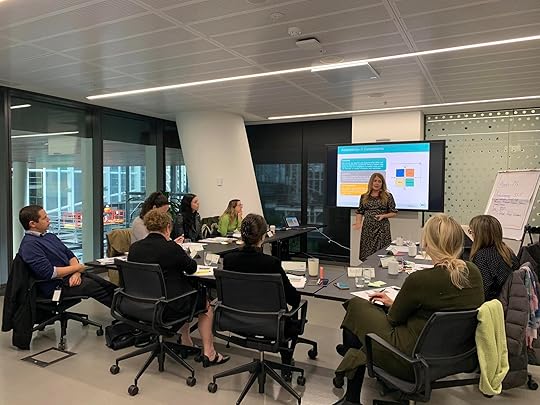
As we continue through 2025, we invite you to explore a selection of our signature programs below.
For leaders:These programs take cohorts of leaders on a journey with topics and themes tailored to their objectives
Limitless Leaders Acceleration ProgramEmotional Intelligence ProgramPresenting with Impact ProgramCoaching for Performance ProgramFor Teams
Acceleration ProgramEmotional Intelligence ProgramPresenting with Impact ProgramCoaching for Performance ProgramFor TeamsThese programs include 1-2 workshops and group coaching follow-up to embed learnings.
Cook & Connect 1-Day Team Building RetreatLimitless TeamsMapping Motivation for Team SuccessCommunicating with ImpactOrganisation & Culture
These programs can be run to teams or town hall style and include the 12 soft Skills of a Gift Mindset and other topics relevant to organisational success.
The Gift Mindset Culture ProgramSkill Pills
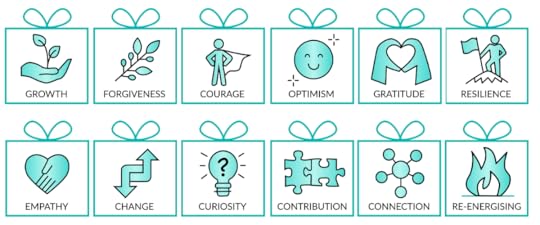
1:1 Leadership, Executive & Career Transition Coaching & Mentoring
Coaching and mentoring is a relationship built on trust and is a very unique one. All sessions are non-judgmental and confidential. We will collaborate with you on your success to assist you in achieving the objectives you set out before commencing the mentoring and coaching program.
Please remember that all our programs are tailored to individual needs, and we ensure our programs complement and align with existing internal frameworks.
How are you growing your leaders and teams for 2025?
If you’re curious about exploring these, please reach out for a chat directly with me.
Book a FREE discovery call here.
Here’s to embracing the rest of the year, filled with learning, growth and transformation!
Lead to be limitless.
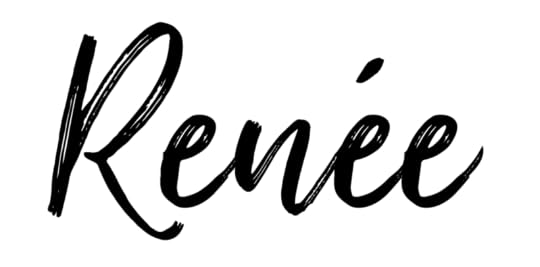
June 12, 2025
The 12 Key Behaviours of a Limitless Leader
Limitless leaders don’t just manage: they inspire, adapt, and evolve. They lead with intention, energy, and a deep awareness of themselves and those around them.
For almost two decades, we have been accelerating thousands of Limitless Leaders and teams across a myriad of industries globally.
Last week, I was reflecting on the key behaviours of effective, high-performing, and happy leaders and created a list of the key behaviours and traits these leaders demonstrate consistently. There are many more, and the ones I have listed are easy to implement and create impact and change, much needed in today’s ever-changing workplace.
Remember, leadership is a choice, not a title. We are all leaders of self, others, and decisions.
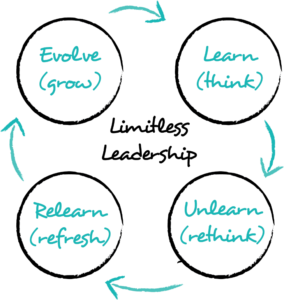
If you want to lead with impact and longevity, here are 12 key behaviours to adopt:
Create and adhere to boundaries: Protect your energy and priorities by setting clear, respectful limits that enable focus and balance.Make time for personal growth: Commit to learning one new thing every day to expand your thinking and stay agile.Challenge the status quo: Be willing to learn, unlearn, and relearn to remain relevant and forward-focused.Approach people and situations with curiosity: Replace assumptions with open-minded questions and a learner’s mindset. Turn statements into questions and be open.Adopt a Gift Mindset: See every challenge or success as a gift and an opportunity for growth and contribution. Share your lessons.Show empathy by being present and open: Leadership is human, make sure you create space for others to feel heard and seen.Practice daily gratitude: Pause each day to reflect on who and what you’re grateful for to fuel optimism and presence. Start team catch-ups asking, “Who and what are you grateful for?”Be an optimist: Lead with hope and confidence, even in uncertainty, to inspire belief in a better now and next.Coach others through powerful questions: Empower those around you by unlocking their thinking instead of giving answers.Know what lights you and others up: Identify your personal drivers and intentionally bring that energy into each day. Find out what lights others up and tap into this.Communicate with clarity and intention: Speak with purpose, listen with depth, and lead conversations that create momentum. Lead yourself first: Self-leadership is the foundation, when you show up for yourself, you can fully show up for others and inspire.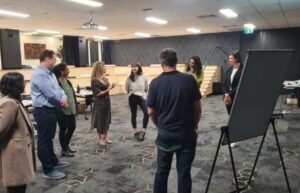 Limitless leadership is a daily practice, not a destination.
Limitless leadership is a daily practice, not a destination.Which of these 12 behaviours will you lean into more starting today?
Love to hear your thoughts.
Lead to be limitless.

May 29, 2025
From Silence to Sharing – Shifting Your Culture Around Mistakes
I’d love to ask you a question.
“Do you and those within your organisation feel confident in being open to sharing mistakes and challenges at work?”
Over the last few years, I have asked this question to leaders, executives, business owners and my peers, and eight times out of ten people responded with no.
How your organisation views failure will ingrain the behaviour of whether sharing lessons, mistakes, and challenges is part of the culture. This has a direct impact on productivity and connection within the organisation. People waste time and resources by reinventing the wheel, reliving the mistakes of others, and wasting time researching solutions and information to create future success.
Many organisational cultures do not encourage or condone the sharing of challenges or failures. This means that sharing might never enter your mind, especially if your current organisation is all you have ever known.
Research by IDC shows that Fortune 500 companies lose a combined $31.5 billion annually due to employees failing to share knowledge and lessons effectively.A study by Harvard Business Review found that only 24% of employees say their company openly discusses failure, and even fewer say they feel safe doing so themselves.According to Deloitte, organisations with strong knowledge-sharing cultures are 92% more likely to innovate and 52% more productive.The Gift Mindset is the portal to creating a culture of openness, sharing, connection and collaboration.
A Gift Mindset is a mindset where we are open to unwrapping the lessons (gifts) in challenging experiences and even challenging people.
Sharing these lessons can progress us and others forward in an open forum.
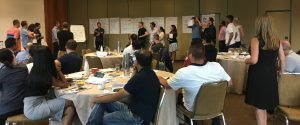
Why share challenges and mistakes?
When people can share challenges, mistakes, and failures in a safe space, they are encouraged and supported to move beyond these.
 Promotes innovation and creativity as people feel open to creating and taking risks.
Promotes innovation and creativity as people feel open to creating and taking risks. Helps build trust and psychological safety.
Helps build trust and psychological safety. Encourages a learning organisation that promotes learning and sharing.
Encourages a learning organisation that promotes learning and sharing. Enhances problem-solving skills and helps get to the root cause.
Enhances problem-solving skills and helps get to the root cause. Helps avoid costly mistakes and when discussed, this can prevent serious errors.
Helps avoid costly mistakes and when discussed, this can prevent serious errors. Improves team collaboration as openly discussing mistakes encourages teamwork and cooperation.
Improves team collaboration as openly discussing mistakes encourages teamwork and cooperation. Reduces repetitive errors if these are shared out in the open.
Reduces repetitive errors if these are shared out in the open. Sharing our lessons could be a survival guide for someone else.
Sharing our lessons could be a survival guide for someone else. Identifying how we got through something helps us deepen and develop key soft skills such as resilience, optimism, curiosity and growth.
Identifying how we got through something helps us deepen and develop key soft skills such as resilience, optimism, curiosity and growth. Failing to share what we have learnt is selfish.
Failing to share what we have learnt is selfish. Sharing drives connection, innovation, communication and collaboration.
Sharing drives connection, innovation, communication and collaboration.
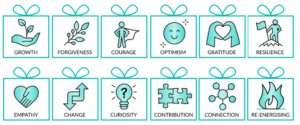
There are many strategies we can implement, including:
Win Wednesday: Encourage individuals or teams to share a win and how they achieved it, including the challenges and mistakes faced along the way.
Failure Fridays: Share a mistake, challenge, or failure, what helped them through it, and the key learnings. Discuss learnings openly — you’ll often see others contribute similar stories and lessons.
1:1 Sessions: Use individual catchups to encourage people to share challenges, setbacks, and opportunities. Deep dive into what went wrong and how that lesson can feed into future development plans.
Monthly Learning Forums or Story Circles: Create a consistent, safe space where teams can bring a “lesson” to the table. This can be done virtually or face-to-face. The key is consistency and modelling openness from leadership.
Leader-led Vulnerability: Leaders going first in sharing their lessons, missteps, or moments of doubt sets the tone. When leaders are real, others follow. This builds trust and allows authentic connection to flourish.
Create a “Lesson Library”: Capture lessons learnt. Whether it’s post-project reviews or informal recaps and make them accessible across the organisation. This turns one mistake into a learning moment for many.
It’s important to note that while sharing mistakes is beneficial, it should always be accompanied by a supportive environment. Employees need to feel encouraged to learn, rather than being shamed for getting something wrong. This will foster a positive and constructive learning culture within the workplace — what we call a Gift Mindset Culture.
As always, I’d love to hear your thoughts and feedback.
Lead to be limitless.




